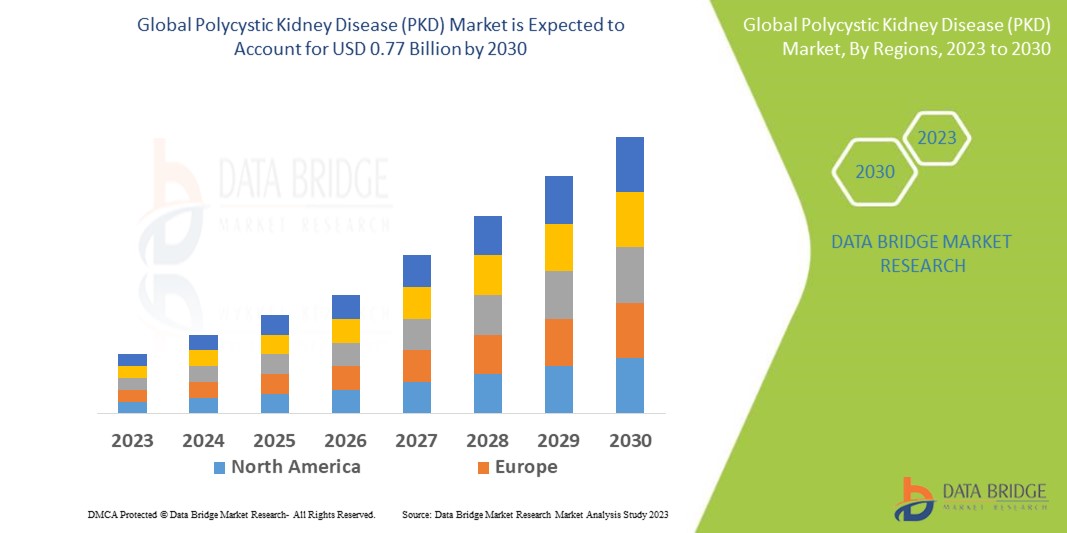Polycystic Kidney Disease (PKD) Market Outlook: Key Insights into Growth, Trends, and Demand
Polycystic Kidney Disease (PKD) Market

Polycystic Kidney Disease (PKD) is a chronic genetic disorder characterized by the growth of numerous fluid-filled cysts in the kidneys, leading to enlarged kidneys and reduced function over time. PKD significantly increases the risk of kidney failure, cardiovascular complications, and high blood pressure. The global healthcare industry has recognized the urgent need for effective diagnostic, therapeutic, and preventive strategies for this condition. The PKD market is emerging as a vital segment within nephrology and genetic disorder therapeutics.
The genetic ailment polycystic kidney disease (PKD) causes cysts to form in the kidneys, causing them to malfunction. High blood pressure and renal failure are two health problems. PKD is a kind of chronic kidney disease that is very dangerous. Cysts can enlarge the kidneys, making it difficult for them to filter waste from the blood.
In recent years, the global polycystic kidney disease (PKD) market is anticipated to grow rapidly during the forecast period of 2023 to 2030, owing to the rising prevalence of kidney disorders. Polycystic kidney disease is caused by genetic abnormalities. In the majority of cases, the disorder is passed down to the children by their parents. As a result, you are born with PKD. However, genes can mutate or change at any time.
Data Bridge Market Research analyzes that the global polycystic kidney disease (PKD) market which was USD 0.49 billion in 2022, is expected to reach USD 0.77 billion by 2030, and is expected to undergo a CAGR of 5.8% during the forecast period 2023 to 2030. “Autosomal Dominant Polycystic Kidney Disease” dominates the type segment of the global polycystic kidney disease (PKD) market owing to the increasing prevalence of thalassemia.
Get more information: https://www.databridgemarketresearch.com/reports/global-polycystic-kidney-disease-adpkd-market
The evolution of the PKD market has been shaped by scientific advancements and strategic collaborations between pharmaceutical companies, biotech firms, and academic institutions. Earlier, treatment options were limited to managing symptoms such as high blood pressure and pain, with dialysis and kidney transplantation as last resorts. However, the approval of targeted therapies like tolvaptan has opened new avenues for disease-modifying treatments. Biopharmaceutical innovations continue to influence the market landscape, with several drugs in the pipeline aiming to slow disease progression or prevent cyst formation entirely.
Current market trends highlight a shift towards precision medicine and gene therapy approaches. There is growing interest in the use of biomarkers and genetic testing for early diagnosis and patient stratification. Digital health tools and AI-based diagnostic platforms are also being adopted to monitor disease progression and personalize treatment. Strategic alliances and partnerships are playing a critical role in accelerating clinical trials and enhancing patient access to innovative therapies. Moreover, regulatory bodies are offering incentives such as orphan drug status to encourage development in this niche area.
Market growth is further fueled by the increasing prevalence of PKD globally. Estimates suggest that PKD affects approximately 12 million people worldwide, with many remaining undiagnosed until the disease progresses significantly. Rising incidence rates, particularly in North America, Europe, and parts of Asia-Pacific, are prompting healthcare systems to enhance screening programs and therapeutic options. Additionally, an aging population, sedentary lifestyles, and comorbidities such as diabetes and hypertension are contributing to the growing demand for PKD-related healthcare services.
The demand for effective treatment solutions and diagnostics for PKD is on the rise. Patients and healthcare providers are seeking therapies that can not only manage symptoms but also delay or prevent end-stage renal disease. This demand is driving pharmaceutical companies to invest in research and development. The market is witnessing increased clinical trials for novel drug candidates, biosimilars, and repurposed medications aimed at altering the disease course. Healthcare infrastructure improvements and favorable reimbursement policies in developed regions are also contributing to higher treatment uptake.
The Polycystic Kidney Disease market holds significant potential for innovation, investment, and growth. As awareness continues to spread and therapeutic options become more advanced, the market is poised to witness substantial developments in the coming years. With the integration of biotechnology, digital health, and patient-centric approaches, the future of PKD treatment and management appears increasingly promising.
Recent Development
- In May 2023, a new Monash biotech business won money to slow the growth of polycystic kidney disease. Cystence Bio, a new Monash biotech business, has secured funding to accelerate research into novel therapies for polycystic kidney disease (PKD), a family of hereditary illnesses characterized by the formation of many large cysts in the kidneys
About Data Bridge Market Research:
Data Bridge set forth itself as an unconventional and neoteric Market research and consulting firm with unparalleled level of resilience and integrated approaches. We are determined to unearth the best market opportunities and foster efficient information for your business to thrive in the market. Data Bridge endeavors to provide appropriate solutions to the complex business challenges and initiates an effortless decision-making process.
Contact Us:
Data Bridge Market Research
US: +1 614 591 3140
UK: +44 845 154 9652
APAC : +653 1251 975
Email: corporatesales@databridgemarketresearch.com




